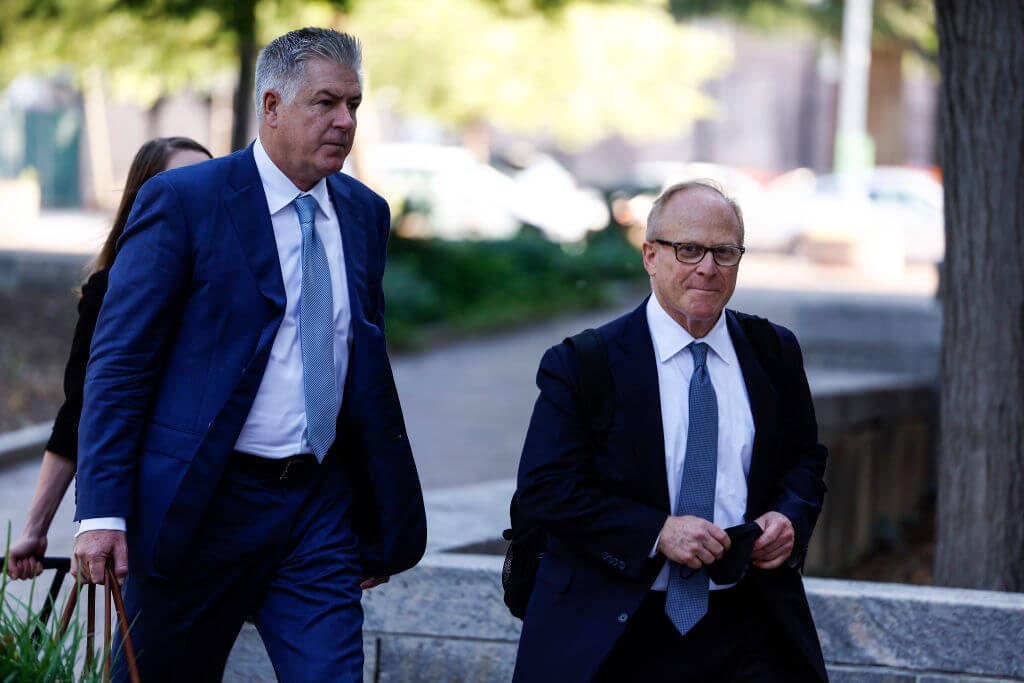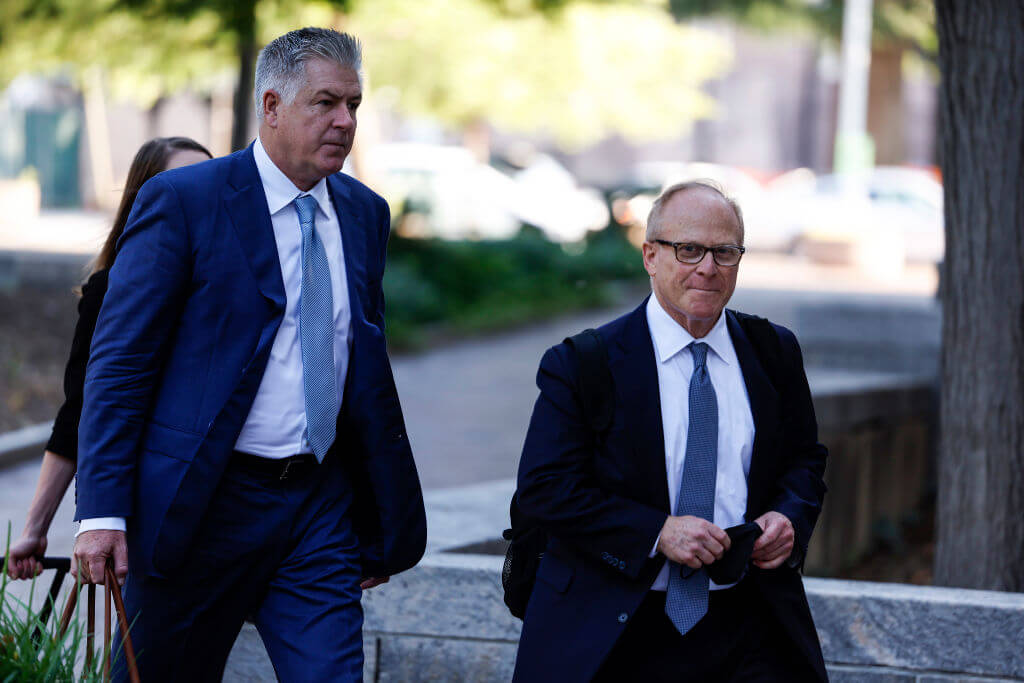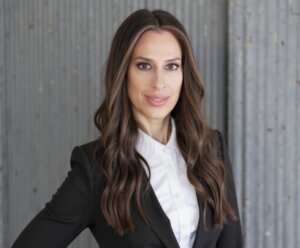Uncategorized
How Judeo-languages helped transmit knowledge to the Jewish masses
זינט אוראַלטע צײַטן האָבן זיך ייִדן באַנוצט מיט פֿרעמדע שפּראַכן כּדי צו באַקענען פֿאַרשײדענע ייִדישע ייִשובֿים מיט קאַנאָנישע טעקסטן פֿון תּנ״ך, גמרא און תּפֿילות. דער דאָזיקער טעמע זײַנען געװידמעט קאַפּיטלען אינעם נײַעם זאַמלבאַנד „בריקן פֿון קענטעניש: ייִדישע שפּראַכן אינעם קולטורעלן קאָנטעקסט“, רעדאַקטירט דורך די פּראָפֿעסאָרן זשאַן באַומגאַרטען (סאָרבאָן־אוניװערסיטעט, פּאַריז), רות פֿאָן בערנוט (אוניװערסיטעט פֿון צפֿון־קאַראָלײַנע) און משה לבֿיא (אוניװערסיטעט פֿון חיפֿה).
הײַנט זײַנען ייִדיש און לאַדינאָ די צװײ סאַמע פֿאַרשפּרײטע און באַקאַנטע ייִדישע שפּראַכן, אָבער די סאַמע אַלטע פֿרעמדע שפּראַך, װאָס ייִדן האָבן „פֿאַרייִדישט“, איז געװען אַראַמיש, דער תּרגום־ און גמרא־לשון. אין מיטל־עלטער האָט דער ייִדישער דיאַלעקט פֿון אַראַביש אויך געשפּילט אַ װיכטיקע ראָלע אין אָפּהיטן און פֿאַרשפּרײטן ייִדישע קענטענישן אױף די ברײטע שטחים צװישן בבֿל און שפּאַניען.
חוץ דעם האָבן ייִדן אין פֿאַרשײדענע לענדער און תּקופֿות גענוצט אײגענע נוסחאָות פֿון איטאַליעניש, גריכיש, אַלט־פֿראַנצױזיש, פֿאַרסי, טאָטעריש, טשעכיש וכּדומה. דער בולטסטער חילוק צװישן דעם ייִדישן און ניט־ייִדישן נוסח פֿון אַ שפּראַך זײַנען ניט די װערטער, נאָר דער אַלף־בית: ייִדן האָבן פֿאַרשריבן זײערע טעקסטן מיט ייִדישע אותיות.
פֿינעף פֿון די פֿערצן קאַפּיטלען אינעם זאַמלבוך באַהאַנדלען אַלט־ייִדיש. איבערטײַטשונגען פֿון לשון־קודשדיקע מקורים זײַנען געװען דער יסוד פֿון דער אַלט־ייִדישער ליטעראַטור. מען האָט איבערגעטײַטשט ניט נאָר דעם תּנ״ך, נאָר אױך די אַפּאָקריפֿן („ספֿרים חיצונים“ אױף העברעיִש), דאָס הײסט ספֿרים פֿון דער תּקופֿה פֿונעם תּנ״ך, װעלכע זײַנען ניט אַרײַן אינעם ייִדישן קאַנאָן אָבער האָבן זיך אָפּגעהיט אין דער קריסטלעכער טראַדיציע.
אַ ספּעציעלן אָרט צװישן די דאָזיקע ביכער פֿאַרנעמט דער ספֿר „חכמת בן־סירא“, שרײַבט פֿאָן בערנוט. ביז הײַנט האָבן זיך אָפּגעהיט פֿיר פֿאַרשײדענע ייִדישע נוסחאָות פֿונעם דאָזיקן ספֿר — אַ סימן, אַז דאָס איז געװען אַ פּאָפּולערע לעקטור. דער מקור פֿאַר די ייִדישע איבערטײַטשונגען איז געװען מאַרטין לוטערס דײַטשישע איבערזעצונג פֿון דער ביבל, װאָס האָט כּולל געװען די אַפּאָקריפֿן, איבערגעזעצט פֿון לאַטײַניש און גריכיש.
די ערשטע ייִדישע אױסגאַבע פֿון בן סיראס משלים איז אַרױס אין קראָקע אַרום 1539, איבערגעטײַטשט דורך דעם משומד יאָהאַנעס העליטש. פֿאַר זײַן שמד האָט ער געהײסן אליקום. בשותּפֿות מיט זײַנע צװײ ברידער האָט ער פֿאַרמאָגט די ערשטע ייִדישע דרוקערײַ אין קוזמאַרק, דער ייִדישער פֿאָרשטאָט פֿון קראָקע.
אָבער דער געשעפֿט איז ניט געגאַנגען גוט, און כּדי פּטור צו װערן פֿון די שװערע חובֿות, האָבן זיך די דרײַ ברידער געשמדט. פֿאַר דעם האָט דער פּױלישער קעניג סיגיזמונד דער ערשטער בטל געמאַכט זײערע חובֿות און געגעבן זײ אַ חזקה אױף דרוקן און פֿאַרקױפֿן אַלע ייִדישע ספֿרים אין פּױלן.
װען ייִדן האָבן זיך אָפּגעזאָגט צו קױפֿן ספֿרים בײַ די ברידער־משומדים, האָט דער קעניג געצװוּנגען ייִדישע קהילות אָפּצוקױפֿן דעם גאַנצן זאַפּאַס פֿון כּמעט 4,000 ביכער. דערנאָך האָט די העליטש־דרוקערײַ אױפֿגעהערט צו דרוקן ייִדישע ביכער בכלל און זיך גענומען פֿאַר קריסטלעכע. צװישן די פֿאַרקױפֿטע ייִדישע ביכער איז מסתּמא אױך געװען דער ספֿר פֿון בן סירא, האַלט פֿאָן בערנוט. מיר װײסן אָבער ניט, צי ייִדן האָבן טאַקע געלײענט די דאָזיקע „טרײפֿענע“ אױסגאַבע.
דער צװײטער ייִדישער נוסח פֿון „בן סירא“ שטאַמט פֿון אַרום דעם יאָר 1600 און האָט זיך אָפּגעהיט בלױז אינעם כּתבֿ־יד. אָבער די צװײ אַנדערע אױסגאַבעס, װאָס זײַנען אַרױס מיט העכער װי 100 יאָר שפּעטער, זײַנען טאַקע געװען פּאָפּולער בײַם אַשכּנזישן עולם. אינעם יאָר 1712 האָט דער אַמסטערדאַמער דרוקער יוסף מאַרסען אַרױסגעגעבן „ספֿר יהושע בן סיראַק“ איבערגעזעצט אױף ייִדיש און העברעיִש.
אין דער הקדמה האָט ער באַשריבן דאָס בוך װי „אײן מעכטיק געטליך ספֿר פֿאַר אַלע מענטשן“, װאָס איז „שײן צו לעזען ניט אַלײן פֿאַר װײַבער“, נאָר אױך פֿאַר „באַלעבאַטים“.די צװײטע אױפֿלאַגע איז אַרױס אין יאָר 1747, אַ סימן, אַז דאָס בוך איז געװען פּאָפּולער.
נאָך אײן אױסגאַבע פֿון „בן סירא“ איז אַרױס אין אָפֿנבאַך, דײַטשלאַנד אין 1721. דער איבערזעצער, אַהרן בן שמואל פֿון הערגערסהאַוזען, איז געװען אַ ייִדישער סוחר מיט ליטעראַרישע אינטערעסן. אַזױ, פֿאַרסך־הכּלט פֿאָן בערנוט, איז די געשיכטע פֿון ייִדישע פֿאַרטײַטשונגען פֿונעם ספֿר בן־סירא אַן אינטערעסאַנטער בײַשפּיל פֿון דעם, װי ייִדן האָבן צוריקגעװוּנען זײער קולטור-ירושה פֿונעם קריסטלעכן רשות.
אַ װיכטיקער מקור פֿאַר ייִדישע איבערטײַטשונגען איז געװען די קבלה. ביזן 17טן יאָרהונדערט איז זי פֿאַרבליבן אַ געהײמע תּורה, װאָס מען האָט געלערנט בלױז צװישן געצײלטע יחידי־סגולה. אָבער מיט דער אַנטװיקלונג פֿון ייִדישן ביכערדרוק איז קבלה געװאָרן פּאָפּולער בײַ מאַסן־לײענער, שרײַבט זשאַן באַומגאַרטען.
אָפֿט מאָל האָט מען אַרײַנגענומען פֿראַגמענטן פֿון קבליסטישע חבורים, אַזעלכע װי ספֿר הזוהר, אין ייִדישע ביכער װעגן מנהגים, אין מעשׂה־ביכער און תּחינות פֿאַר פֿרױען. מען האָט פֿאַרטײַטשט קאָמפּליצירטע מיסטישע השׂגות אױף אַ פּראָסטן לשון, װאָס איז געװען פֿאַרשטענדלעך פֿאַר פֿרױען און נישט־געלערנטע מענער. דערבײַ האָט מען כּסדר ניט דערמאָנט קײן מקור. אַנשטאָט דעם האָט מען פּשוט געזאָגט „המקובלים שרײַבן“. אַזױ זײַנען די מיסטישע באַגריפֿן און אימאַזשן אַרײַן אינעם טאָגטעגלעכן שטײגער פֿון אַשכּנזים.
די נײַע טעכנאָלאָגיע פֿון ביכערדרוק האָט דערמעגלעכט צוצוגעבן ייִדישע טײַטשן אין סידורים און מחזורים. זײ האָבן געהאָלפֿן בעסער צו פֿאַרשטײן די האַרבע עבֿרי פֿון תּפֿילות, אָבער עס זײַנען ניטאָ קײן ראַיות, אַז מען האָט טאַקע געדאַװנט אָדער געלײענט תּורה אױף טײַטש, שרײַבט פּראָפֿעסאָר אורן כּהן רומן (אוניװערסיטעט פֿון חיפֿה).
אין דעם זין זײַנען אַשכּנזים אַנדערש פֿון אַנדערע עדות. די תּימנער האָבן אַ מאָל געלײענט די פּרשה קודם אױף לשון־קודש און דערנאָך אין דער אַראַבישער איבערזעצונג פֿון ר׳ סעדיה גאון. אין אײניקע ספֿרדישע שילן חזרט מען איבער אײניקע פּיוטים אױף יום־כּפּור טאַקע אױף לאַדינאָ.
גאָר אַן אַנדערער זשאַנער זײַנען באַריכטן פֿון ייִדישע נסיעה־שרײַבער, װאָס האָבן דערצײלט װעגן װײַטע מקומות. אײנע פֿון די פּאָפּולערסטע מוסטערן איז „גלילות ארץ ישׂראל“ (געגנטן פֿון ארץ־ישׂראל) פֿון גרשון בן אליעזר סעגאַל פֿון פּראָג, װאָס באַשרײַבט מיטל־מזרחדיקע לענדער. דאָס דאָזיקע בוך האָט געהאַט צען אױפֿלאַגעס צװישן דעם 17טן און דעם 20סטן יאָרהונדערט. אין דער אמתן אָבער איז דאָס ניט קײן אָריגינעלע רײַזע־באַשרײַבונג, נאָר אַ זאַמלונג פֿריִערדיקע העברעיִשע מקורים.
אָבער דאָס הײסט ניט, אַז „גלילות ארץ ישׂראל“ האָט ניט קײן װערט, שרײַבט אסנת שרון־פּינטו (העברעיִשער אוניװערסיטעט אין ירושלים). אױפֿן סמך פֿון אַ פּרטימדיקן אַנאַליז פֿון די מקורים קומט זי צום אױספֿיר, אַז דער מחבר האָט אױסגעקליבן די סאַמע טשיקאַװע מעשׂיות און געגעבן דעם ייִדישן מאַסן־לײענער אַ פֿאַרכאַפּנדיקע לעקטור װעגן כּלערלײ עקזאָטישע װײַטע מקומות. צװישן זײ — רעאַלע בילדער פֿון ארץ־ישׂראל און פֿאַנטאַסטישע מעשׂיות װעגן דעם טײַך סמבטיון און דעם מלכות פֿון צען שבֿטים. דאָס איז אַ מין בוך װאָס װאָלט אױפֿגערעגט דעם כּוח־הדמיון בײַ בנימין, דעם העלד פֿון מענדעלע מוכר־ספֿרימס ראָמאַן „מסעות בנימין השלישי“.
די קאַפּיטלען אינעם זאַמלבאַנד „בריקן פֿון קענטעניש“ ברענגען צונױף טעקסטן פֿון פֿאַרשײדענע לענדער, תּקופֿות און זשאַנערס, װאָס זײ אַלע האָבן געדינט אײן צװעק: צו פֿאַרגרינגערן דעם אױסטױש צװישן פֿאַרשײדענע צװײַגן פֿון דער ייִדישער קולטור דורך איבערזעצן אָדער איבערטײַטשן זײ פֿון אײן לשון אױף אַן אַנדערן.
אַ שאָד נאָר, װאָס די מחברים האָבן זיך באַגרענעצט כראָנאָליגיש און ניט גענומען אין באַטראַכט די מאָדערנע תּקופֿה. אַלטע טעקסטן האָבן װײַטער געלעבט, שעפֿעריש איבערגעאַרבעט, אין די װערק פֿון ייִדישע און העברעיִשע מחברים פֿונעם 19טן און 20טן יאָרהונדערט, אַזעלכע װי מענדעלע מוכר־ספֿרים, איציק מאַנגער, יצחק באַשעװיס און אַנדערע.
The post How Judeo-languages helped transmit knowledge to the Jewish masses appeared first on The Forward.
Uncategorized
A border official mocked an attorney for observing Shabbat. Orthodox lawyers say the issue is not new.

Gregory Bovino, the Border Patrol official who led immigration raids in Minneapolis, reportedly mocked the Jewish faith of Minnesota’s U.S. attorney during a phone call with other prosecutors in mid-January. According to The New York Times, Bovino complained that Daniel Rosen, an Orthodox Jew, was hard to reach over the weekend because he observes Shabbat and sarcastically pointed out that Orthodox Jewish criminals don’t take the weekends off.
The call took place at a moment of extreme tension in Minneapolis, as federal agents under Bovino’s command carried out an aggressive immigration crackdown that had already turned deadly. It came between the fatal shootings of Renée Good and Alex Pretti, both killed during enforcement operations, and amid fierce backlash from local officials and residents.
Bovino made the remarks in a derisive, mocking tone, the Times reported, casting Shabbat observance as a point of ridicule. Bovino had already drawn national attention for frequently wearing an olive double-breasted greatcoat with World War II-era styling, leading some critics to call him “Gestapo Greg” and accusing him of “Nazi cosplay.” Bovino, who pushed back on those comparisons, has since been reassigned.
Rosen, a Trump nominee, was confirmed as Minnesota’s U.S. attorney in October 2025 after a career in private practice and Jewish communal leadership. He has said that rising antisemitism helped motivate his decision to take the job, and that prosecuting hate crimes would be a priority for his office.
For many Orthodox Jewish lawyers, Bovino’s alleged remarks were not surprising. They echoed a familiar challenge: explaining that Shabbat — a full day offline — is not a lack of commitment, but a religious boundary that cannot be bent without being broken.
In a profession that prizes constant availability, that boundary can carry consequences. Some lawyers say it shows up in subtle ways: raised eyebrows, jokes about being unreachable, skepticism when they ask for time off. Others say it has shaped much bigger decisions, including how visibly Jewish they allow themselves to be at work.

David Schoen, an Orthodox criminal defense attorney who served as lead counsel for President Donald Trump during his second impeachment trial, said he has long been mindful of how religious observance is perceived in the courtroom.
“I have made a conscious decision not to wear my yarmulke in front of a jury,” Schoen said, explaining that jurors often “draw stereotypes from what they see.”
Those concerns were reinforced by experience. Schoen said he has noticed a “definite difference in attitude” from some judges depending on whether he wore a yarmulke. In one case, he recalled, a Jewish judge pulled him aside during a jury trial and told him she thought he had made the right choice — a comment Schoen said he found disappointing.

For Sara Shulevitz, a criminal defense attorney and former prosecutor, the Bovino episode brought back memories from early in her career.
Orthodox and the daughter of a Hasidic rabbi — now married to one — Shulevitz said her unavailability on Jewish holidays was often treated as a professional flaw rather than a religious obligation. “It held me back from getting promotions,” she said.
In court, the scrutiny could be blunt. “I was mocked by a Jewish judge for celebrating ‘antiquated’ Jewish holidays,” she said, recalling requests for continuances for Shemini Atzeret and Simchat Torah. In another case, she said, a judge questioned her request for time off for Shavuot and suggested she had already “taken off for Passover.”
When another judge assumed Passover always began on the same day in April, “I had to explain the Jewish lunar calendar in the middle of court while everyone was laughing,” she said.
Not every encounter, Shulevitz added, was rooted in hostility. Sometimes judges simply didn’t understand Orthodox practice. When she explained she couldn’t appear on a Jewish holiday, judges would suggest she join the hearing by Zoom — forcing her to explain that Orthodox Jews don’t use electrical devices on Shabbat or festivals.
The misunderstanding often slid into a familiar assumption. “They think you’re lazy,” she said. “It’s not laziness. Any Jewish woman knows how much work goes into preparing for Passover.”
Rabbi Michael Broyde, a law professor at Emory University who studies religious accommodation, said that Bovino’s alleged “derogatory remarks” are “sad and reflects, I worry, the antisemitic times we seem to be living in.”
He added that the criticism of Rosen reflected a basic misunderstanding of how law offices operate, calling it “extremely rare” for a lawyer’s religious practices to interfere with their obligations, especially when senior attorneys delegate work and courts routinely grant continuances.
“No one works 24/7,” Broyde said.
The episode echoed a similar Shabbat-related incident during Trump’s first term. In his 2022 memoir, former Trump trade adviser Peter Navarro described how a group sought to undermine Trump son-in-law Jared Kushner’s role in the 2020 campaign by scheduling a key White House meeting with Trump on a Saturday, knowing Kushner — who is Shabbat observant — would not attend. Navarro titled the chapter recounting the episode, “Shabbat Shalom and Sayonara.”
The tension between Jewish observance and public life is not new. Senator Joe Lieberman, the first observant Jew to run on a major-party presidential ticket, famously walked to the Capitol for a Saturday vote and ate fish instead of meat at receptions. His longtime Senate colleague Chris Dodd joked that he became Lieberman’s “Shabbos goy.”
Still, Schoen said, visibility can cut both ways. During Trump’s impeachment trial, while speaking on the Senate floor, he reached for a bottle of water and instinctively paused. With one hand holding the bottle, he used the other to cover his head — a makeshift yarmulke — before drinking.
The moment was brief, but it did not go unnoticed. In the days that followed, Schoen said he heard from young Jewish men and businesspeople who told him that seeing the gesture made them feel more comfortable wearing their own yarmulkes at work.
The attention, he said, was unexpected. But for some in the Orthodox community, it became a source of pride.
“I felt honored,” Schoen said.
My guess in all seriousness is that he normally wears a yarmulke and this was reflex. Schoen is modern Orthodox so that would make sense. But I defer to @jacobkornbluh https://t.co/MkKx6W03v2
— Jake Tapper 🦅 (@jaketapper) February 9, 2021
Jacob Kornbluh contributed additional reporting.
The post A border official mocked an attorney for observing Shabbat. Orthodox lawyers say the issue is not new. appeared first on The Forward.
Uncategorized
Deni Avdija becomes first Israeli to be selected as an NBA All-Star
(JTA) — Portland Trail Blazers star Deni Avdija’s meteoric rise has officially reached a new stratosphere, as the 25-year-old forward has become the NBA’s first-ever Israeli All-Star.
Avdija was named an All-Star reserve for the Western Conference on Sunday, an expected but deserved nod after the northern Israel native finished seventh in All-Star voting with over 2.2 million votes, ahead of NBA legends LeBron James and Kevin Durant. Avdija’s breakout performance this season has earned him repeated praise from James and others across the league.
Avdija’s star turn began last year in his first season with Portland, when he further captured the adoration of Jewish fans across Israel and the U.S. But he took another step forward this season, averaging 25.8 points, 6.8 assists and 7.2 rebounds per game. His points and assists clips are by far the best of his career, and rank 13th and 12th in the NBA, respectively. He’s considered a front-runner for the league’s Most Improved Player award.
For close observers of Israeli basketball, Avdija’s All-Star selection is the culmination of a promising career that began as a teenage star with Maccabi Tel Aviv and made him the first Israeli chosen in the top 10 in an NBA draft.
“Deni Avdija being named an NBA All-Star reserve is an unbelievable achievement in the mind of every Israeli basketball fan,” Moshe Halickman, who covers basketball for the popular Sports Rabbi website, wrote in an essay for the Jewish Telegraphic Agency. “This is a dream come true for many — a dream that became realistic and even a must-happen during his breakout season — but something that in his first five seasons in the NBA never came across as something that was going to be real.”
Halickman, who has covered Avdija in Washington, D.C., and in Israel, wrote that Avdija is not only considered the greatest Israeli hooper of all time, but perhaps the best athlete to come out of Israel, period.
Oded Shalom, who coached Avdija on Maccabi Tel Aviv’s Under-15 and Under-16 teams, echoed that sentiment in a recent profile of Avdija in The Athletic.
“Even though he is only 25, I think he is Israel’s most successful athlete in history,’’ Shalom said. “We’ve had some great gymnasts — and I hope everyone forgives me for saying it, because we’ve had some great athletes — but I think Deni has become the greatest.”
Avdija’s ascension has also come against the backdrop of the Gaza war and a reported global rise in antisemitism, which he has said affects him personally.
“I’m an athlete. I don’t really get into politics, because it’s not my job,” Avdija told The Athletic. “I obviously stand for my country, because that’s where I’m from. It’s frustrating to see all the hate. Like, I have a good game or get All-Star votes, and all the comments are people connecting me to politics. Like, why can’t I just be a good basketball player? Why does it matter if I’m from Israel, or wherever in the world, or what my race is? Just respect me as a basketball player.”
Now, Avdija’s talents will be on display at the NBA All-Star Game, on Sunday, Feb. 15, in Los Angeles.
The post Deni Avdija becomes first Israeli to be selected as an NBA All-Star appeared first on The Forward.
Uncategorized
Democratic leader says GOP-led Congress boosted ICE funding while Jewish security is underfunded

House Democratic Leader Hakeem Jeffries used a Jewish gathering in New York on Sunday to spotlight what he described as an imbalance in federal priorities, building on outrage over the Trump administration’s violent crackdown in Minneapolis that resulted in two fatal shootings.
Jeffries criticized the Republican-controlled Congress for boosting immigration enforcement funding by billions while, he said, security funding for Jewish institutions continues to lag amid rising antisemitic threats. He said that in the One Big Beautiful Bill Act, which passed last July and included cuts to Medicaid, the Department of Homeland Security received an additional $191 billion, including $75 billion for ICE.
“If that can happen, then the least that we can do is ensure that this vital security grant program is funded by hundreds of millions of dollars more to keep the Jewish community and every other community safe,” Jeffries said.
The Nonprofit Security Grant Program, established by Congress in 2005 and administered by FEMA under the Department of Homeland Security, provides funding to nonprofits, including houses of worship, to strengthen security against potential attacks. Congress began significantly increasing funding in 2018 after a wave of synagogue attacks nationwide, bringing the program to $270 million today.
Major Jewish organizations are pushing to raise funding to $500 million amid rising antisemitic threats. Last year, the Trump administration briefly froze the program as part of broader agency cuts, and some groups have been reluctant to apply because applicants must affirm cooperation with federal immigration enforcement.
Jeffries said House Democrats strongly support an increase to $500 million annually to meet escalating security needs. “It’s got to be an American issue, because that is what combating antisemitism should be all about,” he said.
The breakfast, previously held at the offices of the UJA-Federation of New York, was held this year for the first time in the events hall at Park East Synagogue, which was the site of a pro-Palestinian protest last year that featured antisemitic slogans and posters.
Sunday’s program also included remarks from Senate Minority Leader Chuck Schumer, who told the audience that his support for Jewish security funding will only continue growing under his leadership, calling it his “baby.”
“As long as I’m in the Senate, this program will continue to grow from strength to strength, and we won’t let anyone attack it or undo it,” Schumer said.
Rep. Jerry Nadler, the co-chair of the Congressional Jewish Caucus who is retiring at the end of the year after 36 years in the House, also spoke at the event. Nadler, like several other Democrats in recent months, compared the actions of ICE agents to the Gestapo, Nazi Germany’s secret police. The comparison has drawn sharp criticism from Democrats, Republicans and Jewish leaders.
Support for Israel aid

Both Schumer and Jeffries vowed in their remarks to continue supporting U.S. military assistance to Israel, amid increasing calls within the party for sharper opposition to Israel. Polls show that Democratic voters are increasingly sympathetic to Palestinians. In July, a record 27 Senate Democrats, a majority of the caucus, supported a pair of resolutions calling for the blocking of weapons transfers to Israel.
“I think it’s the humane thing to do to ensure that Israel has a right to exist as a Jewish and democratic state and eternal homeland for the Jewish people,” Jeffries said. The House Minority Leader, who has cultivated close ties with Jewish leaders since his election in 2012, noted that he has visited Israel nine times. He recalled that on his recent trip, Israel’s ambassador to the U.S., Yechiel Leiter, joked that it might be time for Democrats to buy property in Jerusalem.
Schumer, the nation’s highest-ranking Jewish elected official, has seen his popularity decline and has faced calls to step down from his role as leader. On Sunday, he pledged that he “will always fight to give Israel what it needs to protect itself from the many who want to wipe Israel off the face of the map.”
The post Democratic leader says GOP-led Congress boosted ICE funding while Jewish security is underfunded appeared first on The Forward.


